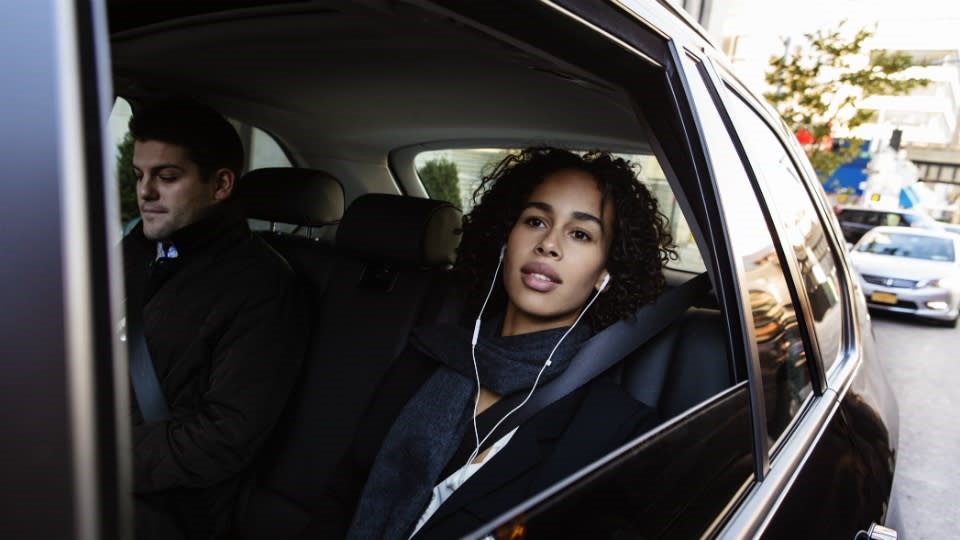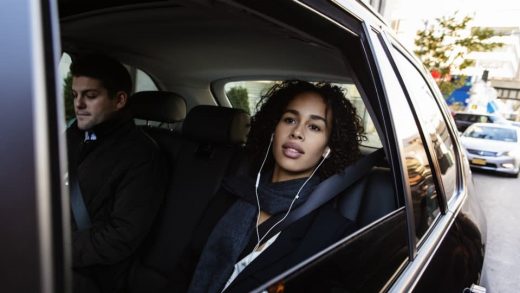Uber is locking New York drivers out of its apps and blaming a city pay rule
Uber is locking New York drivers out of its apps and blaming a city pay rule
Lyft is threatening to do the same.

For the last month, Uber has been locking New York City drivers out of its apps during low-demand periods, and Lyft has threatened to do so, too. Bloomberg reports that the ride-hailing companies blame a New York City Taxi and Limousine Commission (TLC) rule for their behavior. At least one drivers’ union says it may consider striking if the lockouts continue.
The mid-shift lockouts stem from a six-year-old NYC pay rule that requires ride-sharing companies to pay drivers for idle time between fares. Capping how long drivers without passengers can be paid means Uber pays less, but it also means drivers are taking home much less money for the same amount of time on the clock. And they can’t predict when they’ll lose access to the app.
Drivers are understandably angry. “I used to work 10 hours and make $300 to $350,” Nikoloz Tsulukidze, a full-time Uber driver, told Bloomberg. “Now, I just worked 10 hours and barely made $170. I was so disappointed. I’m paying for my gas and cannot make money.”
Uber and Lyft are deploying the “Look what you made me do!” strategy, pointing fingers at the TLC’s pay rule (and each other) while trying to turn drivers into lobbyists against the regulation. An Uber email to its drivers from last month, viewed by Bloomberg, encouraged drivers to “let the TLC know the effect their rules have had” on their wages.
The way the rule affects the companies differently is also a factor in their blame games. Uber’s drivers have been busier this year, meaning its numbers have more weight on the city’s averages, which determine the minimum-pay limits. “The city’s rule bizarrely holds Uber responsible for Lyft’s failures,” Uber spokesperson Freddi Goldstein told Bloomberg. “With Lyft struggling to keep drivers busy, we don’t have other options.”
Meanwhile, Lyft (naturally) views the situation in reverse. “Uber wants to change the rules so that Lyft is penalized,” the company wrote in a June email to drivers. “The current NYC pay formula is broken,” Lyft spokesperson CJ Macklin told Bloomberg. “It forces rideshare companies to limit when drivers can earn, and therefore how much they can earn.”
A drivers’ union says Uber’s over-hiring is the root cause of the ordeal. Bhairavi Desai, president of the New York Taxi Workers Alliance, told Bloomberg that the company “mismanaged” hiring by allowing too many drivers to join its ranks — and the workers are now left to foot the bill. She accused Uber of “gaming the system” by using the TLC’s rule to withhold “time that should be paid under the law and making it unpaid.” Desai says the union will consider striking if necessary.
Although Lyft hasn’t yet begun locking out drivers, it might. A June email to the company’s drivers warned that it would soon “have to” adopt a similar practice.
The current mess in NYC follows a long trail of ugly fights across the country between ride-sharing companies and city regulations. Uber and Lyft staged similar lockouts in 2019 in response to a flat minimum wage requirement for drivers that continued until the following spring. Earlier this year, the two companies threatened to pull out of Minneapolis after the city tried to force a driver pay raise that would push their rates up to the equivalent of minimum wage.
(10)


